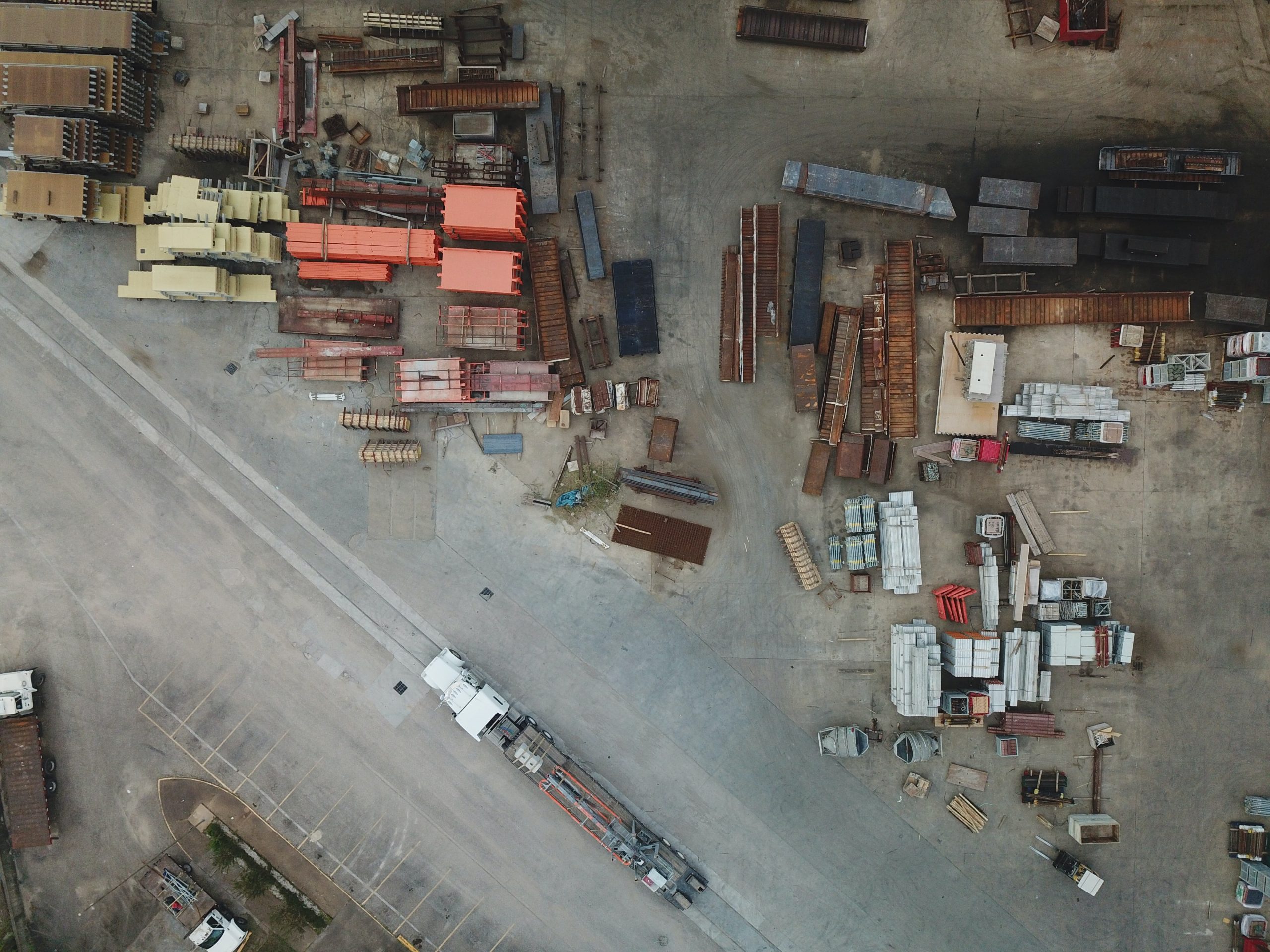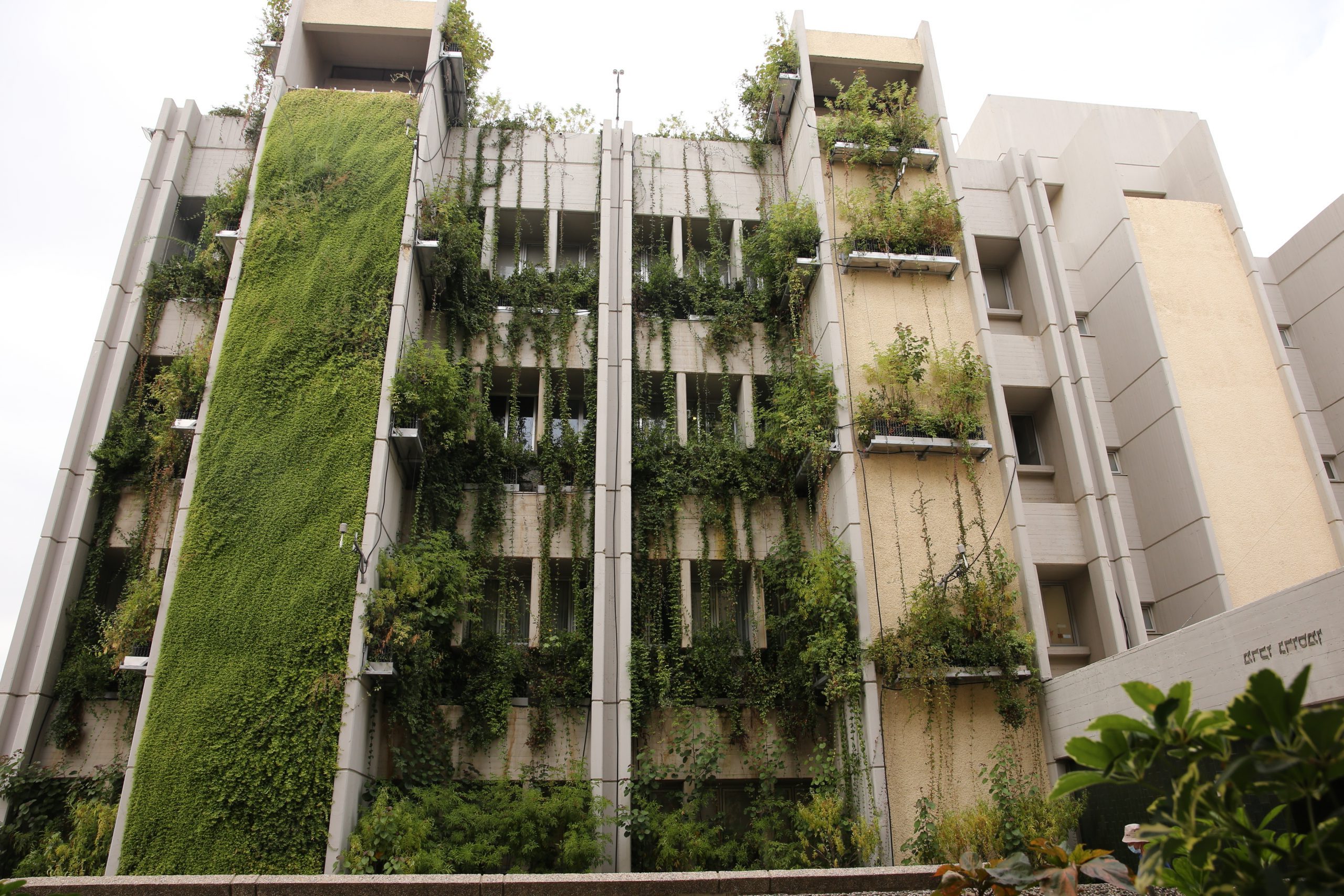Setting Sail with Sustainable Shopping
June 24, 2021As textile and clothing production and its waste generation wildly ramp up, one organization is showing just how well sustainable conduct could transform the overly excessive nature of the fashion industry.
In an era where single-use materials are both mass produced and mass consumed, reducing, reusing, and recycling those materials is crucial in preventing any further harm to our environment from waste mismanagement. But compared to European OECD countries, the rate of recycling materials in Israel lags behind.
By 2017, the E.U. had managed to recycle 46% of its municipal waste and 67% of its packaging waste. Israel, on the other hand, only managed to achieve a 24% recycling rate as of 2018. However, Israel does not intend on ending its environmentally conscious efforts there as the country has already set an ambitious goal to more than double their recycling efforts by 2030 despite the regulatory shortfalls that are often encountered.
To this end, the Ministry of Environmental Protection (MoEP) has formulated a new waste treatment strategy as of February 2021, designed to advance the Israeli economy to achieve a reduction of landfilling to 20% by 2030 from its current 80% landfill rate.
In order to comply with the Ministry’s Strategic Plan for The Treatment of Waste by 2030, 51% of total waste must be recycled thereby vastly reducing the amount of waste going into landfills. Moreover, 23% of waste will be treated at energy recovery facilities, whereas only 26% of waste will be landfilled, according to the Ministry’s plans. To sustainably and efficiently manage waste, many companies like KitePride are adopting and integrating a number of end-of-life solutions for their products such as recycling and upcycling, for example.
From Recycling to Upcycling
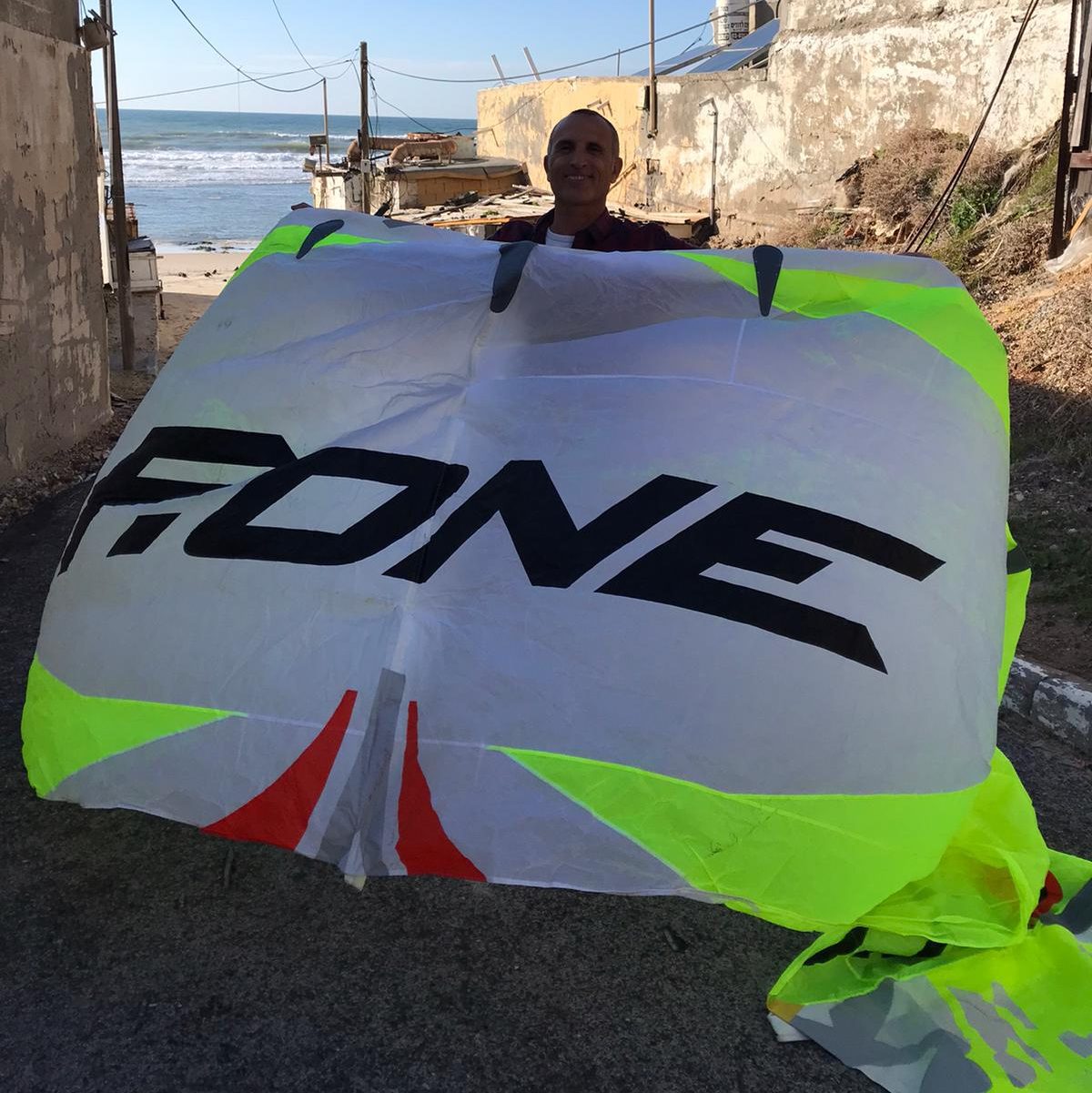
While recycling involves facility processes to convert waste into new, ready-to-use-again materials, upcycling involves using the material in its current state to create a higher quality product so that it may serve an alternative purpose without the need for a facility.
KitePride is a sustainable fashion organization that upcycles a variety of recreational beach gear such as kitesurfing kites, sails, parachutes, and wetsuits into various types of bags, laptop sleeves, COVID-19 masks, and even kippot. In the company’s early years, they limited the scope of their work to upcycling used furniture. Then, in an attempt to create more jobs, Kitepride decided to diversify their services and products while upholding their passion for the environment and sustainable lifestyles. Initially inspired by a woman in Switzerland known for upcycling kites into reusable bags, KitePride expanded upon this transformative idea with her blessing. So instead of throwing away a worn-down kite, for example, KitePride provides kite surfers an opportunity to keep their equipment just in a different form to fulfill some different, convenient, and useful purpose.
“A lot of people don’t like to throw the kite away because they travelled the world with it and spent a lot of money on it. They don’t want to throw it away––not just for environmental reasons, but because they feel connected to it,” says Jackie Ashkenasi, KitePride marketing and sales manager.
KitePride currently has several depositing locations around Israel in schools, churches, and kitesurfing shops in addition to their international dropoff points throughout Cyprus, Switzerland, Germany, Denmark, and the US. Although the kitesurfing community is small, KitePride is the only business of its kind.
“We created a connection with the kitesurfing community here in Israel, mostly through Facebook groups and WhatsApp groups and then through the different shops and brands that work here in Israel,” Ashkenasi adds.
Sustainable Fashion vs. Fast Fashion
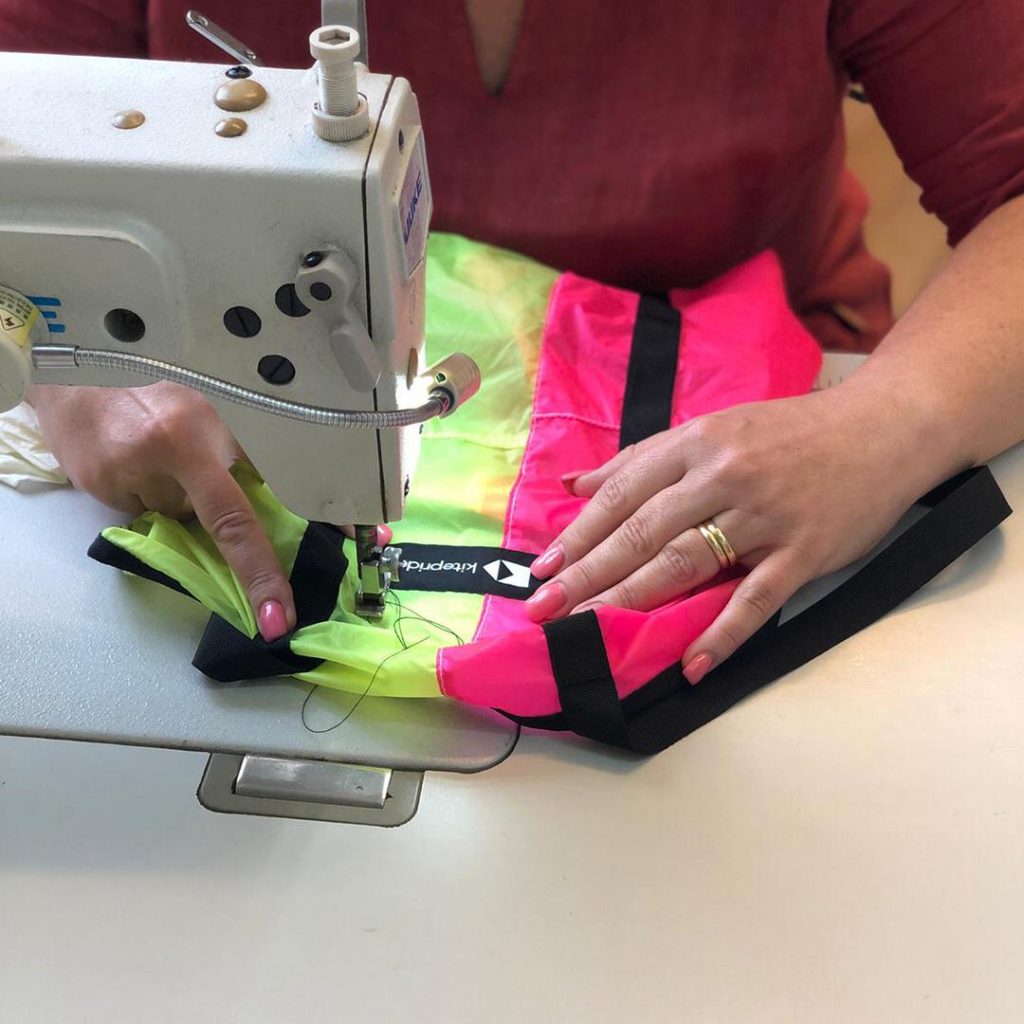
What’s more is that their products are retrofitted by hand; single-handedly sewed and stitched as a way to usher in sustainability into an otherwise wasteful fashion industry, infamously known for its outlandish production rates and needless overconsumption that the industry encourages.
In fact, in less than two decades the production of new clothing doubled from 50 billion garments in 2000 to 100 billion in 2014. This comes as a result of multiple fast fashion chains increasing the number of collections they offer to maximize profits throughout a single year, which used to average out between two and five collections annually. Now, fashion industry giants like H&M release 12-16 collections per year, and Zara launches a new collection on a practically biweekly basis––that’s 24 collections per year. With lower prices incentivizing consumers to purchase more than they actually need, clothes are now worn for half as long as they were in 2002, meaning that the majority of our wardrobe ultimately winds up in a landfill within 3 years. To make matters worse, some of the most harrowing statistics even show that manufacturing a single pair of jeans emits as much greenhouse gas as driving a car 80 miles and that 2,700 liters of water are needed to produce a single cotton shirt––two and a half years worth of drinking water for the average person. And for these reasons, KitePride and other similar organizations around the world urge consumers to take on a ‘less is more’ approach.
Luckily, more than 90 brands have signed on to the Fashion Industry Charter for Climate Action in 2018 to collectively reduce greenhouse gas emission by 30% by 2030 and a year later, 60 companies representing 200 brands representing about a third of the global fashion industry signed onto the Fashion Pact in the effort to restore biodiversity and protect ocean habitats. It’s a step in the right direction.
But taking on a more sustainable business model, however, comes with the added task of balancing production with demand, a tricky move to make in an excess-driven industry. But sustainability is at the core of KitePride’s values; so much so that they even adopted an eco-friendly work environment within their office space. Recycled products are used in place of single-use plastic items, and practically everything that can be environmentally friendly, is.
“The main thing is to not create trash in the beginning,” Ashkenasi said. “At the office we have shared meals; when someone cooks, we eat together. If we have paper we don’t use, we cut it up and use small pieces.”
So, unlike popular fashion chains, KitePride believes in tailoring their products to meet existing demands meaning they refrain from overproducing all at once to avoid creating a surplus of unsold clothing.
In order to avoid this environmentally disastrous issue, KitePride produces in small quantities at a time as they receive orders. Ashkenasi estimated that in the past year, KitePride upcycled 712 kites into 10,148 products. Since their initial founding in 2018, they boast over 28,000 hours of safe rehabilitation employment, over 26,000 one-of-a-kind KitePride products made from over 15,000 m² of upcycled material that would have otherwise been landfilled.
As they look towards expansion, the company is currently hoping to reach a formal agreement with the IDF to use old parachutes that are no longer in good enough condition to be used for training and military purposes.
The Social Angle
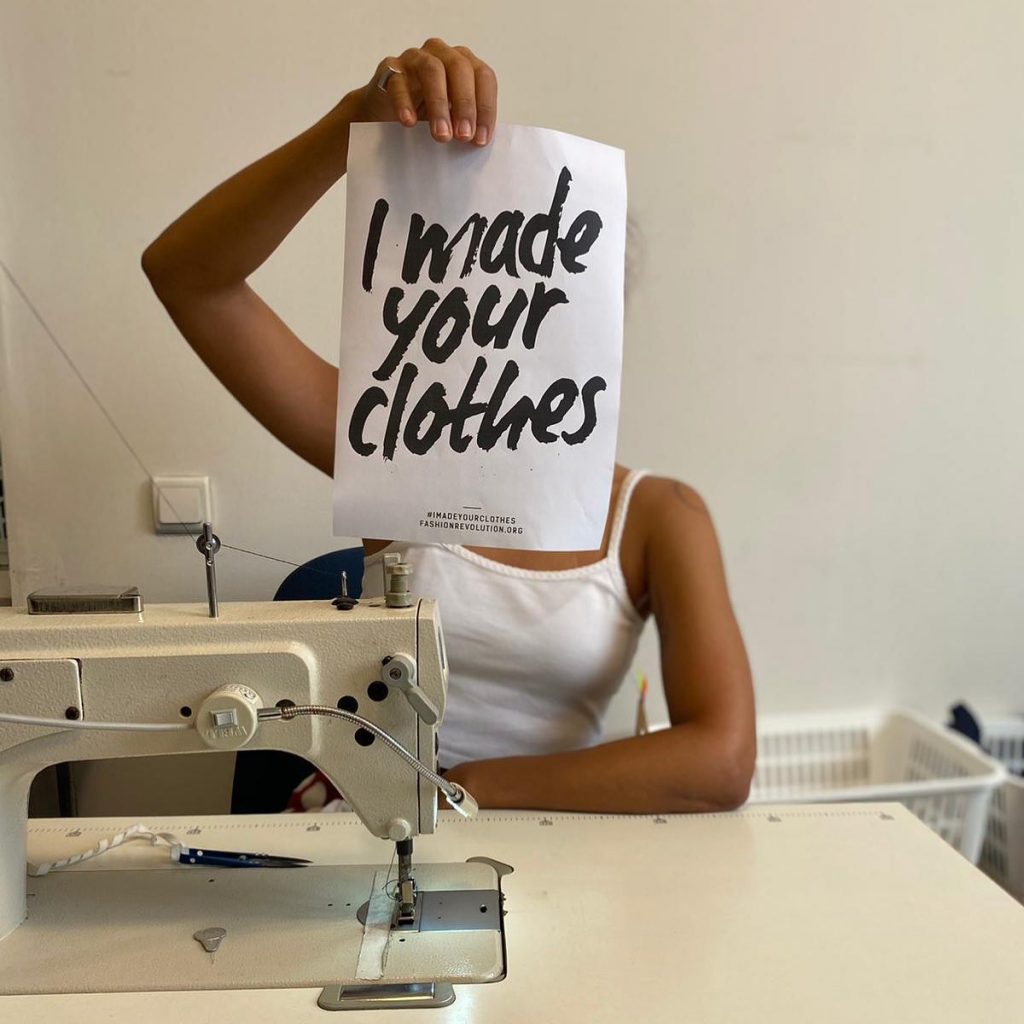
Although environmental considerations are highly valued at KitePride, the environment is not the leading motivator of the organization’s two-tiered mission. While the organization creates and designs upcycled products to limit improper local waste buildup, they are first and foremost dedicated to providing safe rehabilitative employment for men, women, and minors formerly trapped in prostitution rings. According to the Jerusalem Institute of Justice, there are roughly 14,000 individuals in this line of work, and 76% of those interviewed said they feel trapped because of their lack of employment skills, finances, and education.
“Our number one goal is social. It is about creating rehabilitation employment for people exiting prostitution,” says Ashkenasi. “To do so, we need a brand––we need a product, and the more our brand and product are successful, the more we can actually grow and create more jobs.”
By doing so, KitePride blends the social atmosphere and the environment via the products they upcycle and the job opportunities they provide. Because the bags are handmade, a large part of the management job requires training employees in skills like sewing and operating equipment. Although challenging, Ashkenasi sees this as a prime opportunity to aid employees in developing skill sets previously outside their wheelhouse.
By bridging the gap between social hardships and the environment, KitePride is living proof that consumers can embrace sustainability and that Israel as a whole is capable of integrating sustainable conduct throughout the business and commercial sector one industry at a time.
This ZAVIT Article was also published in NoCamels on 21 Jun. 2021

